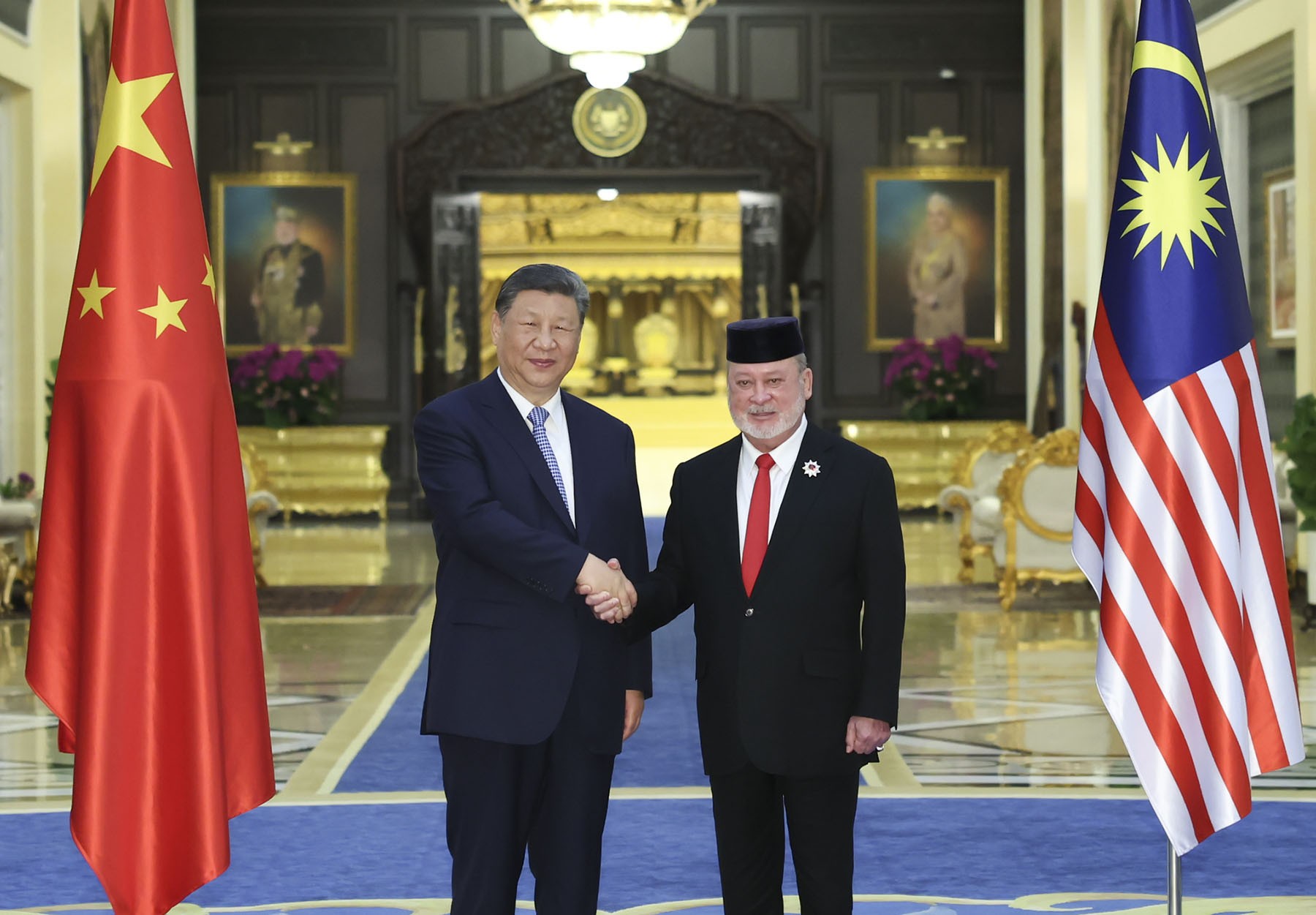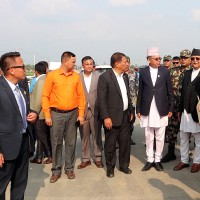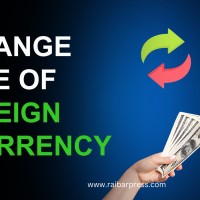China's Xi Jinping Meets Malaysian Leaders in Diplomatic Outreach Tour

KUALA LUMPUR — Chinese President Xi Jinping met with Malaysia’s monarch on Wednesday, part of a strategic Southeast Asian tour aimed at strengthening Beijing’s regional partnerships and projecting China as a stable global player rather than a hegemonic power.
Xi was welcomed by Sultan Ibrahim at the golden-domed Istana Negara with a grand ceremonial reception that included a red carpet inspection of the royal guard and performances by a Malaysian military band. The state visit marks a key moment in China-Malaysia relations as the two nations look to deepen cooperation.
Following his meeting with the king, Xi is scheduled to hold bilateral talks with Malaysian Prime Minister Anwar Ibrahim in Putrajaya. The leaders are expected to witness the signing of several agreements covering economic and diplomatic collaboration. An official dinner hosted by Anwar will follow the talks.
The visit is the latest stop in Xi’s Southeast Asia tour, which has included Vietnam and will conclude in Cambodia. Analysts say the tour reflects Beijing’s broader effort to reassert its influence in a region facing uncertainty amid U.S. trade measures.
“It’s not just about strengthening friendship,” said Dr. Khoo Ying Hooi, an associate professor at the University of Malaya. “This visit is about realigning the region’s strategic center of gravity toward Beijing.”
Khoo described the trip as a calculated diplomatic move to assess regional solidarity at a time when U.S. tariffs and shifting alliances are impacting global trade flows. The U.S. tariff regime under President Donald Trump has disrupted economies across Southeast Asia — many of which are key U.S. allies.
Vietnam and Cambodia, for instance, were hit with 46% and 49% tariffs respectively, while Malaysia faced a 24% tariff. Although the tariffs have been temporarily paused for 90 days, Trump has emphasized that no country is exempt in the long term.
“Regionally, Xi is likely to portray China as a force for stability and development, not dominance,” Khoo added. “At the same time, the message carries a subtle warning: that regional cohesion should not be compromised by Washington’s trade tactics or security alliances.”
Oh Ei Sun, a senior fellow at the Pacific Research Center of Malaysia, likened the visit to “a group of friends huddling together for warmth against harsh weather.”
Xi expressed optimism upon his arrival, saying he hoped the trip would herald “another 50 golden years” of strong ties between China and Malaysia. “I am confident this will be a fruitful visit,” he said in a statement released by the Chinese Embassy in Kuala Lumpur.
The visit comes a year after the two countries marked the 50th anniversary of diplomatic relations. China has remained Malaysia’s largest trading partner for 16 consecutive years, accounting for nearly 17% of Malaysia’s total global trade in 2024, according to the Malaysian foreign ministry.
In an opinion piece published in The Star, a major Malaysian daily, Xi emphasized the importance of resisting protectionism and safeguarding global supply chains. “We must uphold the multilateral trading system, maintain the stability of industrial and supply chains, and foster an international environment of openness and cooperation,” he wrote.
Xi’s next destination is Cambodia, one of China’s closest allies in Southeast Asia, where Beijing has significantly expanded its political and economic influence in recent years.









_3.png)






तपाईको प्रतिक्रिया दिनुहोस